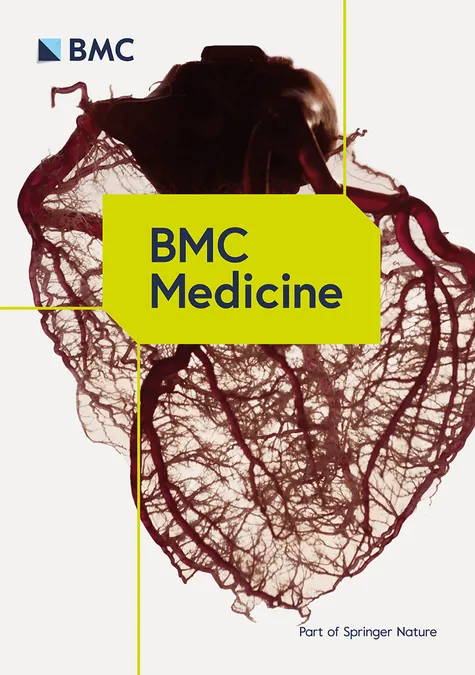
Urgent Call to Action: Lancet Unveils Report on Adolescent Health Crisis
2025-05-22
Author: Rajesh
A Critical Turning Point for Adolescent Health
The second Lancet Commission on Adolescent Health and Wellbeing has just dropped a game-changing report, 'A Call to Action,' on May 21, coinciding with the World Health Assembly in Geneva. Alarmingly, it reveals that adolescent health is facing a crisis, lagging behind advances made for younger children, while rates of non-communicable diseases and mental health issues are on the rise.
Meet the Trailblazers Making a Difference
This pivotal Commission features leading experts from the Bloomberg School, including Dr. Pamela Collins, head of the Department of Mental Health, alongside Dr. Jennifer Requejo, Dr. Yusra Shawar, and Dr. Jeremy Shiffman. Notably, PhD candidate Augustina 'Tina' Mensa-Kwao served as a Youth Commissioner and voiced the pressing issues at the report’s launch.
Removing Barriers and Redefining Priorities
With a formidable group of 44 commissioners, the second Lancet Commission aims to dismantle investment barriers, propose scalable, multi-faceted solutions, and advocate for adolescents—highlighting their unique needs and potential as crucial to a healthier and more equitable tomorrow.
Lessons from the Past: Why We Can't Ignore Adolescents
The inaugural Lancet Commission in 2016 emphasized that boosting the health of the 10-24 age group could lead to a 'triple dividend' benefiting their present, future adulthood, and generations to come. The latest report tackles new global challenges—from climate crises to the fallout from COVID-19—and presents an actionable strategy that calls for accountability, equitable healthcare access, and innovative methods for tackling emerging threats.
Highlights from the Report: Prioritizing Mental Health
Dr. Collins highlighted a crucial finding: adolescents now prioritize mental health over traditional health issues like reproductive health—underscoring the dramatic impact of the pandemic and climate crises on their well-being. The report advocates for investing in mental health-friendly cities to foster environments conducive to youth empowerment.
Investment Gap: Adolescents Are Overlooked
Mensa-Kwao pointed out a staggering inequality—while adolescents represent 25% of the global population, only 2.4% of developmental aid targets them. This discrepancy reveals a failure to seize the incredible potential of investing in youth health. She urges decision-makers to elevate funding to match the critical needs of adolescent health.
Critical Research Needs and Bright Spots
Both experts see a deficiency in research surrounding the influences of digital environments, discrimination, and climate change on adolescent mental health. However, they also celebrate emerging trends like youth-centered research and innovative digital mental health tools, which promise to engage young people more effectively.
Personal Reflections: A Journey of Impact
Dr. Collins expressed her appreciation for collaborating with a diverse team of researchers, emphasizing the importance of comprehensive and youth-centered analyses for improving global well-being. Their mission is clear: to empower adolescents today to ensure a healthier and more just future.


 Brasil (PT)
Brasil (PT)
 Canada (EN)
Canada (EN)
 Chile (ES)
Chile (ES)
 Česko (CS)
Česko (CS)
 대한민국 (KO)
대한민국 (KO)
 España (ES)
España (ES)
 France (FR)
France (FR)
 Hong Kong (EN)
Hong Kong (EN)
 Italia (IT)
Italia (IT)
 日本 (JA)
日本 (JA)
 Magyarország (HU)
Magyarország (HU)
 Norge (NO)
Norge (NO)
 Polska (PL)
Polska (PL)
 Schweiz (DE)
Schweiz (DE)
 Singapore (EN)
Singapore (EN)
 Sverige (SV)
Sverige (SV)
 Suomi (FI)
Suomi (FI)
 Türkiye (TR)
Türkiye (TR)
 الإمارات العربية المتحدة (AR)
الإمارات العربية المتحدة (AR)